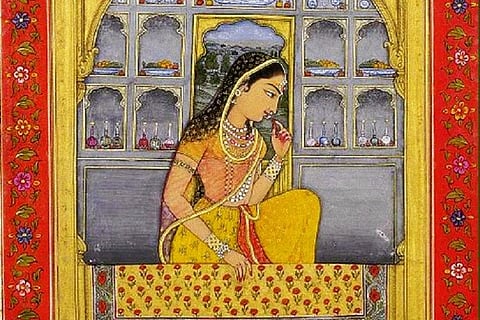

Bhansali Productions, director Sanjay Leela Bansali's production house, on Tuesday said that the misunderstandings regarding the content of "Padmavati" have been clarified with Shree Rajput Sabha.
In a statement, the team said, "Representatives of Bhansali Productions Private Limited, including Ms. Shobha Sant (CEO) and Mr. Chetan Deolekar (Associate Producer) met with the office bearers of all the social organisations under the Shree Rajput Sabha in Jaipur. The misunderstanding they had on the content of the film has been cleared and clarified. We have clearly stated that there is no romantic scene or song or dream sequence between Rani Padmavati and Allauddin Khilji."
This comes barely a week after activists of the Shree Rajput Karni Sena protested against and misbehaved with the film’s crew at the shoot location in Jaipur's Jaigarh Fort. They also damaged some cameras and other equipment, forcing Bhansali to stop shooting.
What got the Sabha's blood boiling?
The film "Padmavati", starring Ranveer Singh, Deepika Padukone and Shahid Kapoor, tells the story of Alauddin Khilji, the medieval-era Delhi ruler, who fell in love with a Rajput queen called Padmavati. Padmavati was the queen of Chittor and killed herself rather than letting Khilji capture her.
The Sabha’s objection was to the possible distortion of facts in the movie.
Deepika Padukone in a still from Bajirao Mastani; Screenshot: Eros Now/YouTube
But did Padmavati really exist or was she a fictional character?
Amid strong criticism of the Sabha's actions, what has emerged is a discussion on whether or not Padmavati was a historical figure.
According to historians, the story of Padmavati, said to be a romantic fiction, was written around 200 years ago, in 1303, by a Sufi poet Malik Muhammad Jayasi.
The poem Padmavati revolves around the life of Padmani, the princess of Simhala-dvipa. Jayasi, according to Adrija Roychowdhury's report in The Indian Express, described Padmini as "a perfect woman".
The princess had a talking parrot, Hira-mani, who after being humiliated by the king of Simhala-dvipa, went to King Ratnasen of Chittor and informed him about Padmini's exceptional beauty. Enthralled by the bird's description, Ratnasen fought many battles and was finally able to marry Padmini.
A sorcerer from Chittor, who Ratnasen had earlier banished for invoking dark spirits, later told Alauddin Khilji of Padmini’s beauty, following which the latter invaded the kingdom to acquire her. The queen went on to commit jauhar- a custom where women mass-immolate to avoid being taken captive by invaders.
While there are accounts of Khilji invading Chittor, there doesn't seem to be any historical description available of the jauhar as such.
A depiction of princess Padmavati, via Wikimedia Commons
Calling the story a myth, Manimugdha Sharma wrote in The Times of India, "It created, out of whole cloth, the legend of Padmini or Padmavati, the Ceylonese princess turned loyal queen --there is not a shred of historical evidence that she existed."
The creator of the story, Jayasi, never seems to have called it a documentation of facts. Sharma further writes, "According to the Imperial Gazetter of India, 1909, 'in the final verses of his work, the poet explains that it is all an allegory. By Chittor, he means the body of man; by Ratan Singh, the soul; by the parrot, the guru or spiritual protector; by Padmavati, wisdom; by Alauddin, delusion, and so on."
The author and mythologist however makes a different and more important point- the homophobia that ties "filmmakers, playwrights and critics across party lines".
In a piece for mid-day.com, Pattnaik wrote that Padmavati was "at best a legendary figure. Legend is story based on a few historical facts, unlike myth which is truth based on faith."
However, something that both Bollywood and historians will not talk about is that "Alauddin Khilji was known for his homosexual leanings".
"What story will Bollywood not tell? Plot 1: a woman's beauty turns a silly, shallow, unsuitable homosexual boy into a Bollywood-approved heterosexual stalker. A magical transformation hoped by many parents who force their gay sons into marriage. Plot 2: the invader leaves the city and its queen alone, after the king lets himself be captured by the obsessive invader. For the sake of queen and country, why not?" Pattnaik wrote.